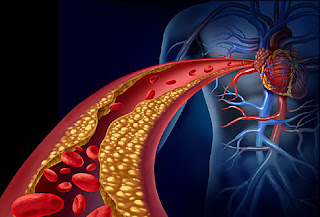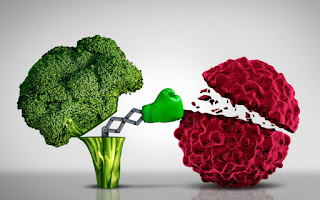THE WORLD'S FIRST KILLER - CARDIOVASCULAR DISEASE
Cardiovascular Disease is the first killer in the world. The World Health Organization shows that 17.5 million people died from cardiovascular disease in 2012, accounting for 31% of the total deaths worldwide. An estimated of 7.4 million people died from coronary heart disease and 6.7 million died from stroke. High blood pressure, high cholesterol levels, high sugar levels, poor diet, unhealthy lifestyle, lack of exercise, alcohol and tobacco, obesity ...... are all risk factors affecting the health of the heart.
What is Cardiovascular Disease?
Cardiovascular Disease is caused by the stenosis and occlusion of the heart and cerebral arteries that prevent the blood from flowing into the heart or brain. The most common cause is the accumulation of fatty layers on the inner walls of blood vessels in the heart or brain. When the artery is completely blocked, a heart attack or stroke may occur.
Cardiovascular Disease is a group of heart and vascular disorders:
- Coronary heart disease
- Congenital heart disease
- Cerebrovascular disease
- Peripheral arterial disease
- Rheumatic heart disease
- Deep vein thrombosis and pulmonary
- Heart failure
Common Symptoms of Cardiovascular Disease:
Potential vasculopathy is usually asymptomatic. Heart attack or stroke may be the first warning.
- Symptoms of a Heart Attack:
- Centered chest pain or discomfort
- Sore arm, left shoulder, elbows, jaws or back
- Difficulty of breathing or shortness of breath
- Nausea or vomiting
- Dizziness or fainting
- Cold sweat
- Pale
Patients with coronary heart disease tend to develop pressure-induced angina after vigorous exercise. Pain spreads to the shoulders, neck, jaw and arms, but it improves after a rest. Patients with heart failure will be more irritable and may have edema in feet.
Genetic factor is one of the major causes of cardiovascular disease. In addition, lifestyle and eating habits are also closely related.
Causes of Cardiovascular Disease:
- High blood pressure
- High cholesterol level
- Diabetes
- Obesity
- High triglyceride level
- Smoking
- Alcohol
- Lack of physical activity
- Contraceptives
- Certain drugs
Nutrition and Dietary Advice
Healthy Eating Helps Prevent Cardiovascular Disease
Fruits and Vegetables
The biggest advantages of fruits and vegetables are low fat, they contain dietary fibre, vitamins, minerals, and antioxidants. It is recommended to eat 2 servings of fruits and 3 servings of vegetables.
Whole grains
Whole grains are rich in protein, fibre and other nutrients that help prevent chronic diseases. Such as choosing brown rice, artichoke noodles and whole wheat bread.
Beans
Beans are rich in minerals and fibre, not saturated with some animal proteins. Helps to lower blood cholesterol level.
Nuts and Seeds
Rich in omega-3 fatty acid, some nuts and seeds have the same fatty acid content as oily fish and are important sources for a healthy diet.
Fish
Consume fish at least twice a week, especially with omega-3 fatty acids such as salmon, trout and herring.
Low-fat and Non-fat Dairy Products
It is recommended to consume 2-3 servings of fat-free or low-fat dairy products. Children should have 2 or more servings, adolescents and the elderly should have 4 servings. Avoid alternatives such as coconut oil, palm oil or palm kernel oil. These saturated fats increase blood cholesterol level. High cholesterol in the blood can also cause cardiovascular disease. Such as the reduction of fat meat, fried food, especially high concentrated and fat sauces and long-fried foods.
Eat More "Healthy Fat"
Polyunsaturated fatty acids and monounsaturated fatty acids are good for the health of the heart. Consume 1-2 tablespoons of grapeseed oil, rapeseed oil, olive oil or other vegetable oils daily. Consume daily essential fatty acids helps to maintain the blood cholesterol levels.
For A Healthy Diet
Do not eat processed meat products (such as canned meat)
Because processed meat products contain high fat (30 grams of processed meat products is equivalent to 1 tablespoon of vegetable or animal oil), so it should be limited. Also reduce the consumption of other vegetable or animal oils, such as butter, salad dressing to limit fat intake.
Low Salt Diet
To lower blood pressure, the goal is to eat no more than 2400 mg of sodium daily. Reduce daily intake to 1500 mg, is to further lower blood pressure. Even a daily reduction of 1000 milligrams of sodium intake can be beneficial to healthy blood pressure.
Reduce Sugars in Drinks and Food
Eating too much sugar can increase calories, which can lead to weight gain and even obesity, thereby increasing risks of heart diseases.
Limit Amount of Alcohol
To ensure a healthy lifestyle, do not drink alcohol more than the recommendation. Pregnant women are strictly recommended not to have alcoholic drinks. For a regular adult, one to two small glasses per week are allowed. However, Do not drink alcohol when taking a particular medication, while driving or operating machines.
AXXA SO PLUS
AXXA SO Plus is produced using non-genetically modified, nutrient-rich seeds via NatureFRESH Cold Press ™, an exclusive, patented cold pressed technology. Each packet is enriched with essential fatty acids (Omega 3 and 6) and a powerful antioxidant derived from plant seed oil and seed meal to provide you with the multiple nutrients your body needs to maintain cardiovascular health , or a lifestyle that helps stabilize blood pressure and cholesterol to promote healthy vitality.
Source:
1.
World
Health Organization. About cardiovascular diseases. Available
at:http://www.who.int/mediacentre/factsheets/fs317/zh Accessed in December 2017
2.
Centre for Health Protection. Heart Diseases. Available
at: http://www.chp.gov.hk/en/resources/465/57.html.
Accessed in December 2017
3.
American Heart Association. The
American Heart Association's Diet and Lifestyle Recommendations. Available at: http://www.heart.org/HEARTORG/HealthyLiving/HealthyEating/Nutrition/The-American-Heart-Associations-Diet-and-Lifestyle-Recommendations_UCM_305855_Article.jsp#.WjdYb9-WY2w.
Accessed in December 2017
4.
American Heart Association. How to
Eat Healthy without “Dieting”. Available at: https://healthyforgood.heart.org/eat-smart/articles/how-to-eat-healthy-without-dieting.
Accessed in December 2017
5.
World Heart Day. http://worldheartday.org.hk/news/%E5%85%A8%E7%90%83%E9%A0%AD%E8%99%9F%E6%AE%BA%E6%89%8B-%E6%AD%A3%E8%A6%96%E4%B8%89%E5%A4%A7%E9%A2%A8%E9%9A%AA-%E7%AE%A1%E5%A5%BD%E8%A1%80%E5%A3%93-%E6%B8%9B%E5%BF%83%E8%A1%80%E7%AE%A1%E7%97%85.
Accessed in December 2017
AXXA SO PLUS ™
Contact for nutrition professionals
39922921
Whatsapp: 64624572
Wechat: axxasoplus
Facebook: https://www.facebook.com/nutrition.seed
Website: www.xlife-axxa.com/nutritionseed








留言
張貼留言